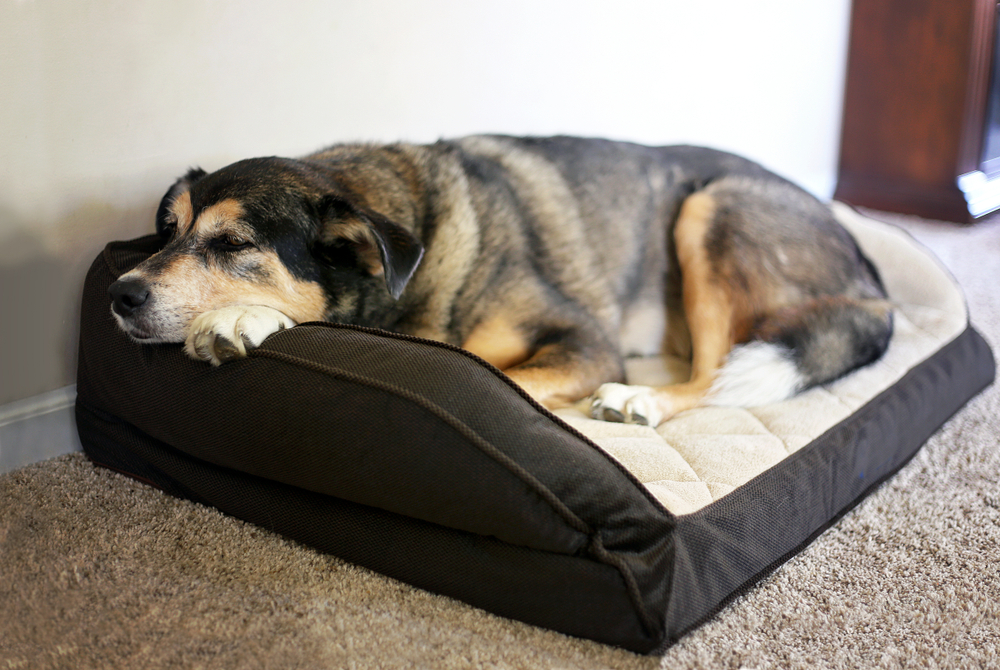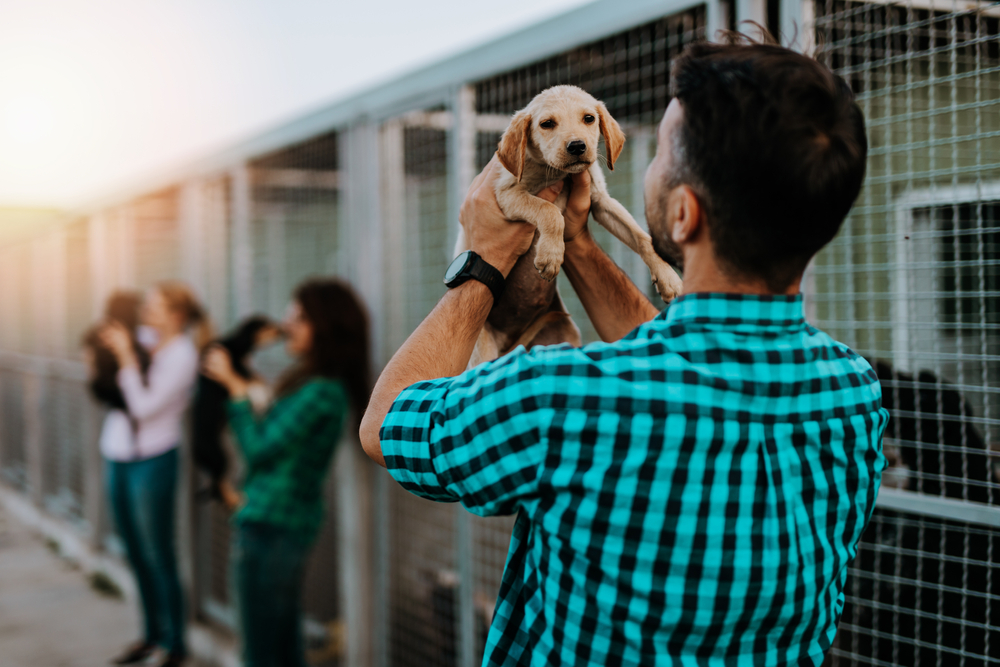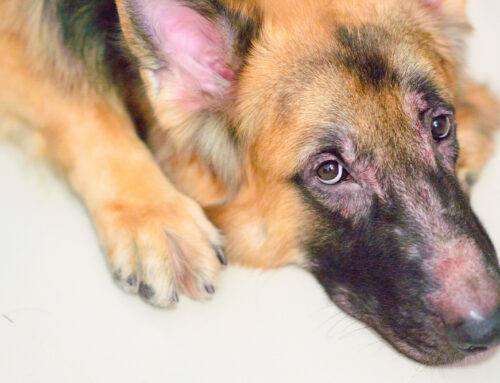Big ones, little ones, loud ones, quiet ones, fuzzy ones, sleek ones, friendly ones, shy ones—dogs come in many different shapes, sizes, and temperaments. If you have decided to adopt a puppy, choosing the right one for your family is paramount for a successful outcome. Our team at Stack Veterinary Hospital would like to provide tips to help ensure you find the perfect puppy to add to your family.
#1: Choose the right size puppy for your family
From tiny Chihuahuas to massive Great Danes, dogs vary greatly in size. When choosing a puppy, ensure you know how large they are expected to grow. Size issues to consider include:
- Space — Larger dogs tend to need more space to be comfortable. If you live in a tiny apartment, a mastiff is likely not your best choice. Large dogs need wagging room to prevent tail injuries, and damage to household objects. You should also consider your car size. You will look pretty comical trying to fit a Great Dane in a Mini Cooper.
- Children — Large dogs can unintentionally hurt young children by knocking them down or stepping on them. Conversely, children can unintentionally harm small dogs since they are more fragile, and they may retaliate by biting your child. Medium-sized, gentle dogs tend to be a better choice for families with children.
- Expense — Large-breed dogs are usually more expensive. They need more food to meet their nutritional needs, more medicine when they get sick, and their beds and crates need to be larger.
#2: Choose a puppy who has the right activity level for your family
All dogs need daily exercise to keep them fit and at a healthy weight. However, some breeds are more active, and require more than a few leisurely walks throughout the day to keep them engaged. If these physical requirements aren’t met, behavioral issues could result, so you should definitely consider your family’s activity level when deciding which puppy would be best for you.
- Energetic — If you are looking for a dog who can be a jogging partner, or if your family enjoys tackling difficult hiking trails, consider breeds such as Labrador retrievers, border collies, and Australian shepherds. These dogs require daily strenuous exercise to stay happy and healthy.
- Active — If you enjoy some physical activity but nothing too strenuous, consider adopting an active dog who doesn’t require strenuous workouts. Consider Jack Russell terriers or beagles, who enjoy a vigorous fetch game and long walks through the neighbourhood.
- Sedentary — If you can commit to only one leisurely walk a day, you should consider a low energy dog, such as a basset hound, bichon, or shih tzu.
#3: Choose a puppy whose maintenance needs are right for your family
All dogs require basic grooming, but some need more intensive maintenance than others. Floppy eared dogs tend to be more prone to ear infections, and some dogs, such as mastiffs and bloodhounds, drool excessively. The dog’s hair coat dictates how much they will shed, and how much grooming they will need.
- Smooth — Smooth coated dogs, such as dachshunds and beagles, require less grooming than other breeds, but they can shed a lot. Frequent brushing can help prevent this issue.
- Double — Double coated dogs, such as Newfoundlands and Pomeranians, need more care to remove excess hair and mats.
- Long — Long coated dogs, such as Irish setters and Yorkshire terriers, need more brushing to remove knots.
- Wire — Wire coated dogs, such as Irish wolfhounds and border terriers, need a stripping comb to thin their fur, and a slicker brush to get out tangles.
- Curly — Curly coated dogs, such as poodles and bichon frises, need their coat trimmed frequently, to prevent mats.
#4: Choose a puppy who has the right pedigree for your family
Purebred dogs and mixed-breed dogs all have pros and cons. You have to decide which is best for your family.
- Purebred — Purebred dogs have predictable physical traits, behaviors, and temperament, but they are more expensive, and tend to have more health problems.
- Mixed-breed — Adopting a mixed-breed puppy from a shelter helps alleviate the strain on animal shelters and saves a life. These dogs tend to have less health issues than purebred dogs, but their physical traits and personalities can be unpredictable.
#5: Ensure your family is prepared for a puppy

Puppies need to be socialized, housebroken, and trained, which requires a lot of time and energy. Puppies often chew on furniture and other personal items, and can cause significant damage to your home. Ensure your family is ready to make this commitment before adopting a puppy. You can also consider dogs of other ages.
- Adult dogs — Adopting an adult dog will ensure you know their true energy level, attitude, and temperament.
- Senior dogs — Senior dogs can make wonderful gentle, low-key companions, and they usually are euthanized, or have to live out their golden years in a shelter, if they are not adopted.
By taking time to consider the right puppy for your family, you can ensure a successful match. If you adopt a new puppy, contact our American Animal Hospital Association (AAHA)-accredited team at Stack Veterinary Hospital, so we can meet your new addition, and start them on the right wellness track.







Leave A Comment